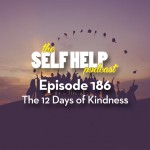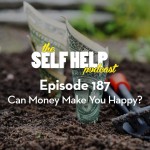Can Money Make You Happy?
The answer is no, unless you are an addict and even then it will only be temporary.
We are back to our old friend Dopamine, the love drug. Dopamine is produced in the brain and leads to feelings of joy and excitement. Dopamine is produced in response to a stimulus such as drugs or alcohol or to a feeling as in love, attachment or expectation, or to an action such as driving fast, jumping out of planes or bungee jumping. In fact Dopamine is reproduced in response to anything that we label as fun and exciting. While we can all enjoy the ‘wow!’ feeling of Dopamine and may enjoy it or look forward to it, the stimulus response cycle may not dominate our life. When the craving, or drive towards a Dopamine hit begins to dominate our existence and our behaviour we have an addiction.
Addiction is probably the most misunderstood aspect of human experience. We tend to see addiction as a bad thing that happens to bad people, or to people who have been led astray by others. If you enjoy the feeling of exercise and look forward to the next class you are describing your addiction or need for stimulus and response that is driven by your need for Dopamine. We are all addicts.
Try changing the word addiction to habit and it might be easier to understand. If each day you pray, meditate, attend church, go for a walk, talk to a particular person, eat a certain thing for breakfast, whatever is your habit. But if you feel odd or out of salts when you are unable to or do not complete your habit you have an addiction.
When you wake up in the morning if the first thing that you do is to check your phone rather than acknowledge your partner, you have a phone addiction. If you do acknowledge your partner prior to using your phone then you have a partner addiction that we might label love. If your first action in waking is to go and get a coffee then you have a caffeine addiction. Even if you drink decaf you still have a coffee addiction. Once we can see our habits, repeated activities, often enacted below our awareness, as addictions we can begin to understand the addictive quality of the human psyche.
Addiction disorder
Anxiety has kept human beings alive throughout evolution. Anxiety disorder is when we have continual production of stress hormones when there is nothing to feel stressed or anxious about. There is also the realisation that we can create the same anxious effect in our system by simply imagining an anxious situation so that our body mind and brain react as though the event is actually taking place in real time right now.
Our entire system works in this way. We may become aroused by imagining a sexual situation it does not actually need to be happening for the aroused response to take place. The same may be true of drugs, going to church, or taking exercise. The anticipation is so powerful that the dopamine begins. However the needs of Dopamine need to be fulfilled. If there is not fulfilment of the anticipated outcome the response will either be a withdrawal response, that may include depression or there may be an increased drive towards the anticipated addiction. In drug and alcohol work a common phrase is “the addiction always comes first’, this need to fulfil the Dopamine cycle can be to the detriment of relationships, jobs and emotional stability and even life itself.
Addiction disorder happens when this simple, normal and common effect of mind and imagination for an anticipated fulfilment drives towards ever greater levels of Dopamine. This is very important because in all addiction it is not the stimulus that we are addicted to it is the Dopamine and Dopamine is an unforgiving master who demands higher and higher levels of stimulus to create the desired emotional effect. This is why addictive behaviours always increase. This is the difference between a regular habit and an addiction disorder. An addicted perpetrator of domestic violence will escalate their behaviours over time so that a loud voice becomes a shout, becomes a slap, becomes a punch, becomes a kick, becomes a beating.
So back to money
If the ownership of money, or the ability to spend money, is an active part of your stimulus and response mechanism then you will experience that money does, in fact, make you happy because it feeds that ‘wow!’ feeling of Dopamine. Once we find a route to Dopamine production we will continue to enact the stimulus and response mechanism so that we continue to feel good.
What is money?
All money is potential energy. A unit of currency is like a seed full of potential energy that when released can create something. An acorn can create an Oak tree. Money is simply a form of energy. When we release that energy we can turn it into something else. In physics the law is that energy is never lost all it does is change its form. The energy or power in money is the same. When we use it we change its form into goods, services, actions and so on. If the things that we use money for create a Dopamine response within us then we will develop an addiction to the need for money to maintain those levels of Dopamine. We were told as kids that “money is the route of all evil”. This is a misquote the original was “the love of money is the route to all evil”. In the terms we are talking about here, it is the addiction to money that creates our problems.
Mindful responses to Dopamine addictions
Whatever your addiction, disorder there are solutions and they lie in Mindfulness. Behaviours, habits and addiction are embedded in the mind, emotions and actions, often below awareness. Using Mindful techniques and developing your observer self that sits above the mind and emotions you are able to see your habit cycles and, most importantly make decisions to feed those habits that serve you well and to starve those habits that do not serve you well.
What you feed grows and what you starve dies
If you do have an addiction to money, or the things that it can get you, remember this…
Love people and use money
Not the other way around.
Be happy and enjoy 2017
Sean x



Trackbacks & Pingbacks
[…] Sean wrote a blog post on this subject. Have a read… […]
Leave a Reply
Want to join the discussion?Feel free to contribute!